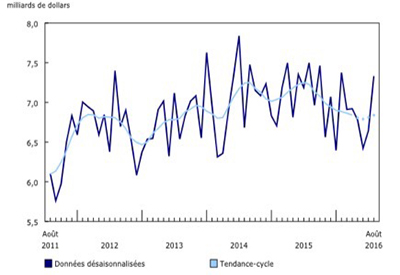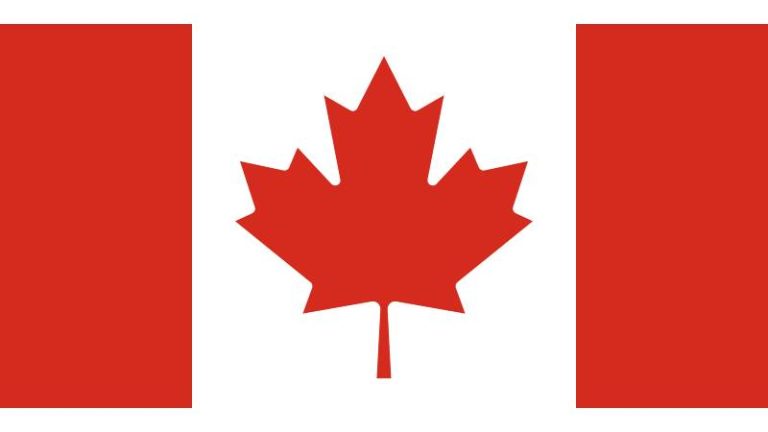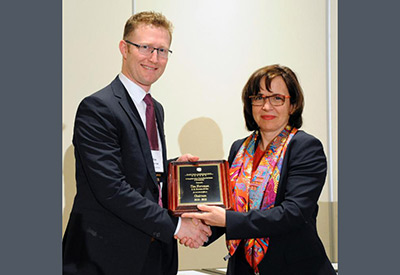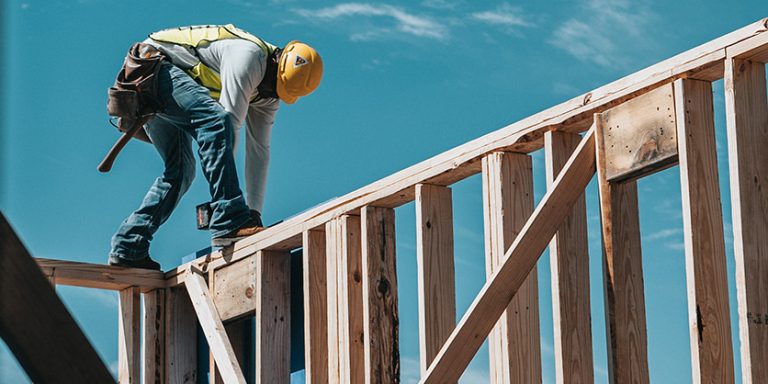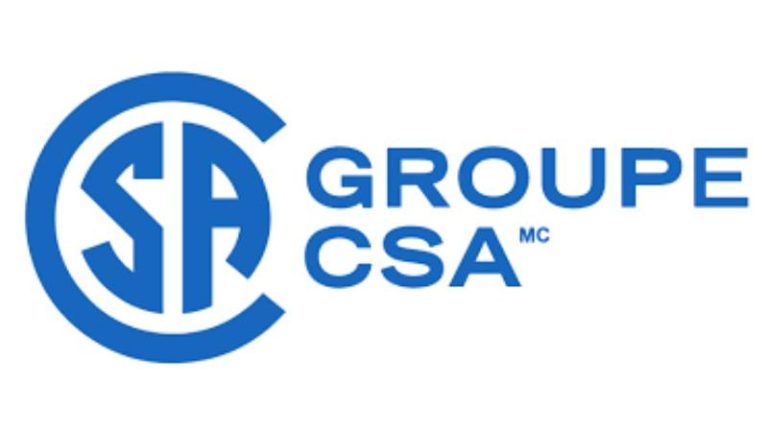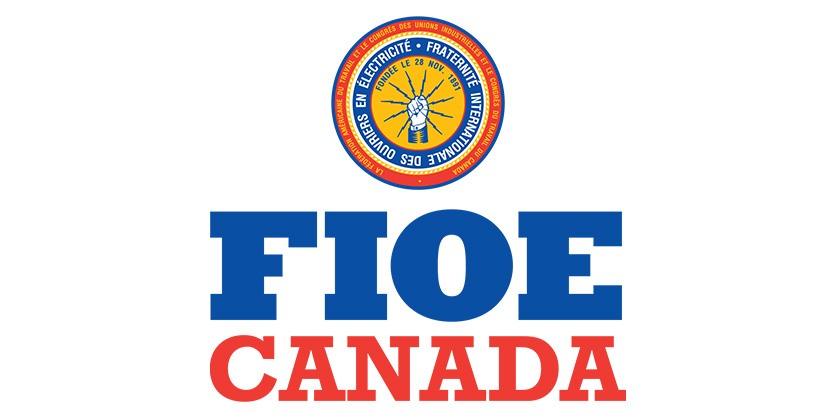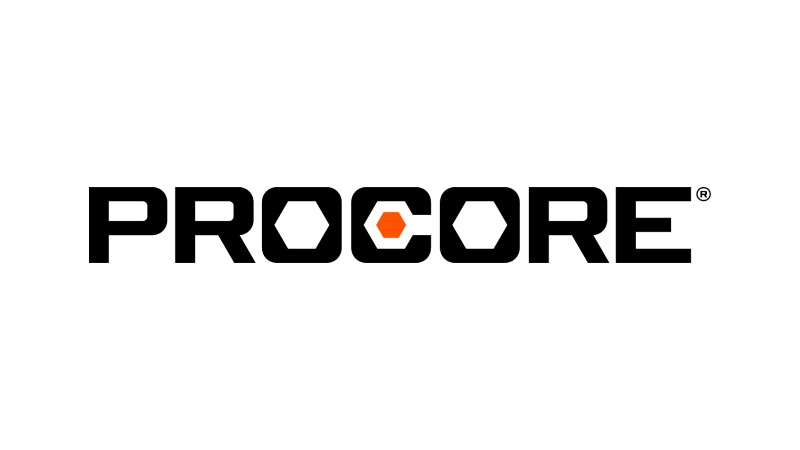Évaluation sur le terrain/ Inspection de l’équipement électrique
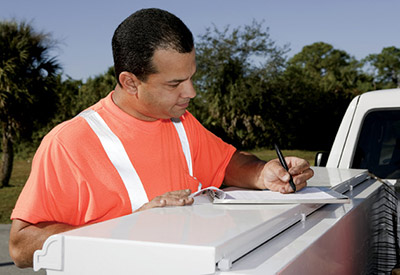
Historiquement, au Canada, un appareil électrique offert à la vente ou à l’installation doit être certifié conformément aux lois provinciales et territoriales et rencontrer les exigences d’un organisme de certification accrédité par le Conseil canadien des normes (CSC). Quand un appareil électrique arrive sur le marché canadien sans une marque de certification, les organismes de réglementation provinciaux ou municipaux doivent évaluer le produit pour la sécurité électrique afin d’approuver la vente ou l’utilisation du produit sur leur territoire.
De nombreuses autorités compétentes n’ont pas le matériel d’essai et l’expertise et les ressources internes pour évaluer efficacement l’équipement électrique conformément aux normes canadiennes ou, au moins, selon les exigences minimales en matière de sécurité électrique. En outre, certains équipements non approuvés peuvent être déjà installés au moment où l’autorité locale a la possibilité de vérifier l’installation.
Historically in Canada, an electrical product to be offered for sale or installed had to be certified in accordance with provincial and territorial statutes that it meets an applicable Canadian (CSA) safety standard by a certification body (CB) accredited by the Standards Council of Canada (SCC). When an electrical product appeared on the Canadian market without a certification mark, the provincial or municipal regulatory authorities needed to evaluate the product for electrical safety in order to approve the product for sale or use in their jurisdictions. Many authorities having jurisdiction (AHJs) lack the testing equipment and in-house expertise and resources to effectively evaluate electrical, equipment to Canadian standards or to, at least, minimal electrical safety requirements. As well, some unapproved equipment may already be installed by the time the local inspection authority has a chance to inspect the installation.
Prior to 1994, the AHJs would often ask the Canadian Standards Association (CSA) to evaluate the unapproved product, on their behalf, with final approval of the evaluation report given by the AHJ. At that time CSA offered a special inspection program on behalf of participating provinces and territories when certification of such equipment was impracticable or otherwise unavailable. The service provided the means for evaluating products on location in the field and, if found in compliance with stated technical requirements developed by CSA engineers, such products would be marked with a Special Inspection service label. This service was operated by CSA for 20 years with a good safety record.
At that time, most electrical equipment sold in Canada, was manufactured either in Canada or the U.S. and was certified for Canada by CSA to Canadian standards. As a result of the Free Trade Agreement (FTA) with the U.S., the Standards Council of Canada (SCC) opened up the accreditation system to U.S.-based and other Canadian certification bodies. In addition, through other trade agreements, more products manufactured from around the world appeared on the Canadian market. These two factors led to more unapproved products entering the Canadian market, and the need for more special inspection or field evaluations. Other CBs also wished to offer field evaluation services similar to CSA’s. Although each certification body had its own guidelines, the AHJs were reluctant to approve products that had not been evaluated to Canadian standards or to guidelines developed with consensus input.
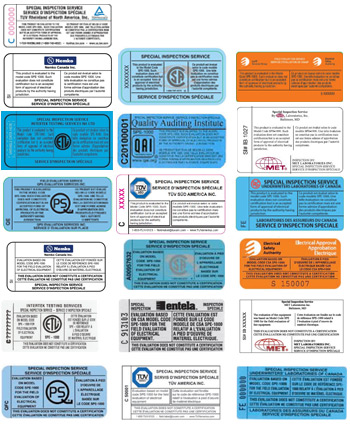
Examples of field evaluation/ special inspection labels of various inspection bodies. Source: the Electrical Safety Authority website
In 1992, the Canadian Advisory Council on Electrical Safety (CACES) requested that CSA guidelines be formally published as a consensus document that could be recognized and used by other CBs to evaluate equipment. CSA agreed and the first edition of CSA Model Code SPE-1000, Model Code for the Field Evaluation of Electrical Equipment, was published in 1994. Subsequent editions were published in 1999, 2009 and 2013. Accordingly, the definition of “approved: equipment in the Canadian Electrical Code, Part I has been revised to recognize that equipment may be made “approved” not only by certification to appropriate standards but also through field evaluation by an SCC accredited inspection body accepted by the AHJ.
SPE 1000 applies to
a) custom-built equipment for special applications
b) equipment manufactured on a non-repetitive basis
c) equipment sold in quantities of not more than 500 on a national basis, per model, per year, per inspection body
d) equipment not obtainable as “certified” under a regular certification program
e) equipment already installed or ready for use on-site and awaiting acceptance by the AHJ
f) complete systems or sub-assemblies that are all available for examination and testing during the evaluation process
g) other electrical equipment as determined by the AHJ
It must be noted that the field evaluation label is not a certification mark. The SPE 1000 model code does not deal with type (or prototype) inspection and testing of equipment as practiced in a regular certification program. The model code contains requirements that address minimum construction, marking, and test requirements that are consistent with maintaining the level of safety for electrical products with respect to fire, shock, and other hazards that may expose a user or operator to danger.
In 2004, the SCC instituted an accreditation program for Inspection bodies. All provincial and territorial AHJs now require any inspection body to be accredited by SCC to perform field evaluations.
In the U.S., the American Council on Electrical Safety (ACES) recommended that field evaluation guidelines similar to CSA SPE1000 be developed for use in the U.S. In 2012, the National Fire Protection Association (NFPA) published two documents related to field evaluation in the U.S.: NFPA 790: Standard for Competency of Third-Party Field Evaluation Bodies and NFPA 791: Recommended Practice and Procedures for Unlabeled Electrical Equipment Evaluation.
NFPA 790, the standard for competency of evaluation bodies, specifies qualifications and competencies for parties performing field evaluations, and is intended to be used by fire marshals, AHJs and other personnel involved with evaluating non-certified, unlabeled equipment, and products and assemblies that are unique or modified after manufacture. NFPA 791 is a companion document to NFPA 790 and outlines recommended practices for field evaluations and how they are to be completed. Together these NFPA standards provide similar provisions for the U.S. electrical product regulators as the CSA SPE 1000 provides for Canadian AHJs.
For more information regarding either CSA SPE1000 or NFPA 790 and 791, contact CSA and NFPA respectively.
Sources: http://shop.csa.ca/en/canada/page/home; http://www.nfpa.org/codes-and-standards.
William (Bill) Burr is the former Chair of the Canadian Advisory Council on Electrical Safety (CACES), former Director of Electrical and Elevator Safety for the Province of BC, and former Director of Electrical and Gas Standards Development and former Director of Conformity Assessment and Regulatory Relations at CSA Group. Bill can be reached at Burr and Associates Consulting, billburr@gmail.com.


